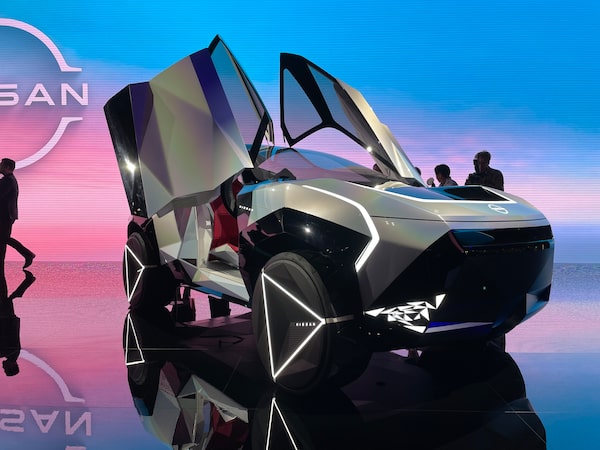
The Nissan Hyper Punk electric compact crossover after it was revealed at the 2023 Japan Mobility Show in Tokyo.Petrina Gentile/The Globe and Mail
Nissan was a pioneer in the electric vehicle space. In 2010, the Japanese automaker brought the world’s first mass-produced EV, the Nissan Leaf, to market. Since then, more than a million Leaf hatchbacks have been sold globally. But over the years, Nissan lost its way, falling behind other established automakers, such as General Motors and Hyundai, and new players such as Tesla. It took Nissan more than a decade to introduce its second EV, the Ariya SUV, while others gained traction and momentum in the expanding segment.
But now, Nissan is accelerating its “Ambition 30″ plan, which aims to introduce 27 electrified vehicles, including 19 new battery-electric vehicles, by 2030. To kick-start its plan, Nissan introduced five EV concept vehicles, including three standouts at the 2023 Japan Mobility Show: a Hyper Tourer electric minivan, a Hyper Force high-performance electric sports car and an artsy Hyper Punk electric compact crossover. And Infiniti, Nissan’s luxury arm, unveiled its first EV concept, the Vision Qe sedan, ahead of the show.
“We need to be more agile and we need to transform. It’s a very challenging market today,” Makoto Uchida, chief executive officer of Nissan Motor Corp., said during a roundtable discussion at the show. “But we are well positioned to navigate between regulations that want EVs and are pushing hard for them and the [more gradual] shift in the consumer market on how quickly they will embrace EVs.”
“We need transformation of the company in line with what the customer needs, in line with the market demand and the environment,” he added.
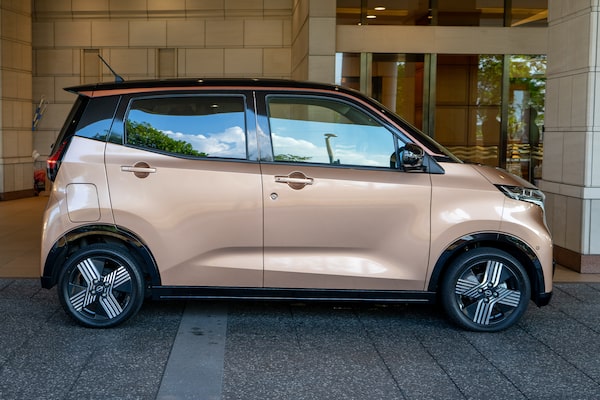
The Nissan Sakura EV is not long, but can fit four adults.Kunal D’souza/The Globe and Mail
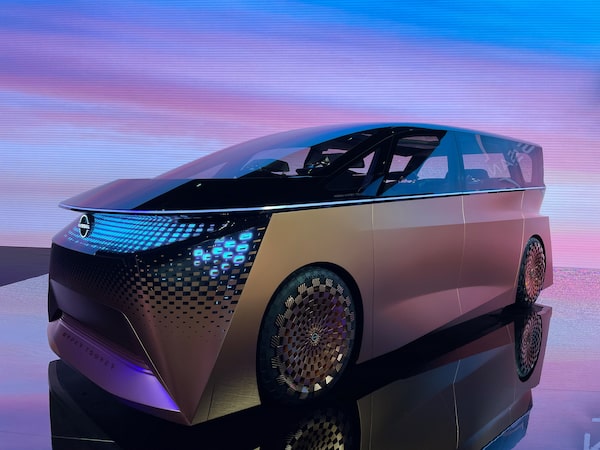
The Nissan Hyper Tourer concept during the 2023 Japan Mobility Show in Tokyo.Petrina Gentile/The Globe and Mail
Uchida acknowledges that affordability is an issue that keeps consumers from buying EVs, but he’s optimistic EV prices will drop and Nissan will offer increasingly affordable EV options in the future. “EV pricing will keep coming down because ... the cost of the goods of EVs are going down much faster than we expected,” he said. “If you cannot make the cost competitive, how are we going to be sustainable?”
EV adoption is low in Canada as well as Japan. EV sales in Japan totalled about 2 per cent in 2022, even with compelling new EV offerings. Last year, Nissan introduced the Sakura EV, an ultra-compact car that’s practical and affordable, starting at the equivalent of about $16,000. Now, it’s the best-selling EV in Japan, outselling Tesla. This model isn’t coming to Canada.
In Canada, Nissan EV sales are low, accounting for 5 to 7 per cent of the company’s total new vehicle sales, according to Steve Milette, president of Nissan Canada Inc. Though Nissan’s EV market share is still fairly small, he said, “it is growing as we introduce Ariya and new EVs.”
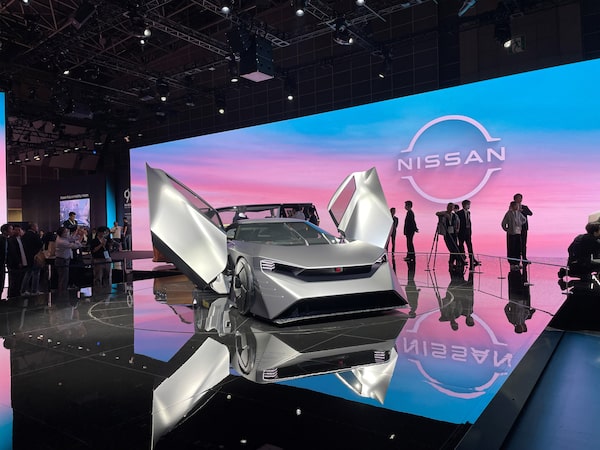
The Nissan Hyper Force electric sports car concept on display at the 2023 Japan Mobility Show on Wednesday.
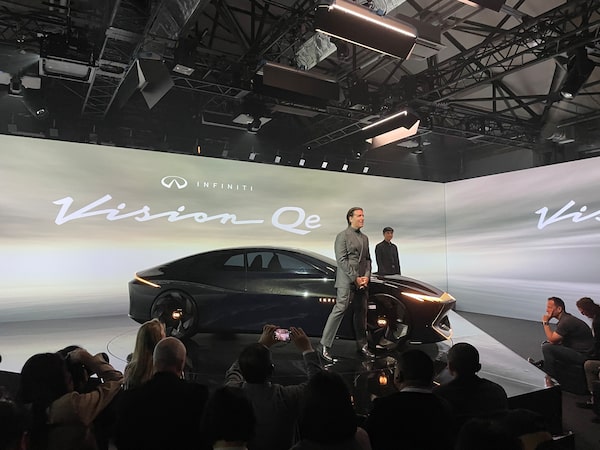
The Infiniti Vision Qe concept, which was revealed on the eve of the 2023 Japan Mobility Show on Tuesday, shows the vision for the luxury brand as it moves to an electric future.Petrina Gentile/The Globe and Mail
But the Ariya is still facing supply issues. “We’re capacity constrained when it comes to Ariya and we’re not quite there yet in terms of supply matching the demand … but the good news is it is improving,” Milette said. “We definitely need Ariya at much higher volumes to meet the 2025 mandate in Quebec or 2026 federally. We have all the confidence we will get there.”
Two electric vehicles – a Nissan EV and an Infiniti EV – will be built in the United States at Nissan’s Mississippi assembly plant. That should help improve supply issues in Canada down the road. “There will be a growing supply of EVs from the U.S. into Canada. It is important and it will have an impact on the affordability of EVs as we move forward,” Milette said.
“We are invested into EVs. It’s important to me because our government is very aggressive and proactive as far as the EV mandate is concerned. He said Nissan is showing its commitment to EVs with concept vehicles and massive investments, “which will bode well for our market in Canada.”
The writer was a guest of the auto maker. Content was not subject to approval.
 Petrina Gentile
Petrina Gentile